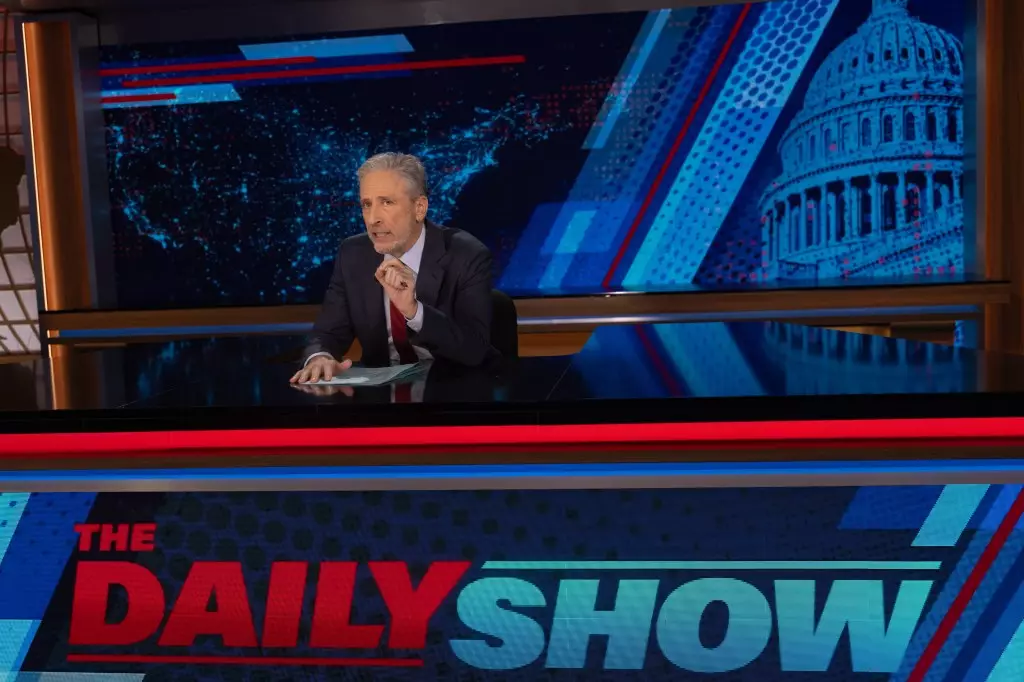Jon Stewart, the beloved former host of *The Daily Show*, recently took to the airwaves during a period of political anxiety and unrest. This self-awareness is not merely an observation; it serves as a comedic strategy, tapping into the prevailing sentiment among viewers, particularly Democrats, who are understandably on edge. Opening his segment with a nod to the collective anxiety, Stewart reframed this anxiety as beneficial for ratings. This clever juxtaposition highlights a recurring theme in political satire: the transformation of fear and uncertainty into comedic gold. By coaxing viewers to indulge in their need to stay informed—even if it means consuming content that may grate against their nerves—Stewart further solidifies the role of comedy as a comfort amidst chaos.
Delving into the segments featuring correspondents such as Troy Iwata, Grace Kuhlenschmidt, and Jordan Klepper, Stewart showcased a variety of perspectives on the elections. Iwata, for instance, donned a garbage outfit while covering the Trump campaign, cleverly symbolizing the messiness of political discourse. Here, humor meets a poignant critique of the political landscape. Iwata’s assertion that “people are really sick of all the positive signs” speaks volumes about a populace eager for raw and unfiltered truths rather than sanitized narratives, revealing a fatigue for spin and a desire for authenticity in political reporting.
Stewart’s interplay with Iwata also serves as a reminder that regardless of the election outcome, the fervor of political engagements—seen in acts like defacing a desk—remains unabated. This troubling notion underscores how deeply entrenched political identities have led to actions that may incite chaos, reflecting a disconcerting gap between civic engagement and violent impulses. Stewart navigates this territory with humor, allowing viewers to confront rather than escape these realities.
The night’s agenda took an unexpected turn when Senator John Fetterman was slated to join Stewart but withdrew at the last minute. The appearance of Arizona Governor Katie Hobbs in Fetterman’s place added a layer of unpredictability to the evening. Hobbs expressed “optimism” regarding her state’s electoral prospects, yet Stewart’s quip about the race to be his “best friend” humorously underscored the often absurd nature of political relationships. By joking that Hobbs won by “a jillion,” Stewart effectively diffuses the tension by pivoting the focus away from heavy political discussions, reminding viewers that relationships—and even rivalries—can embody whimsical absurdity.
In this lively episode, Jon Stewart adeptly bridges the gap between comedy and the harsh realities of political life. By using humor as a lens to dissect political tension, he offers both entertainment and a platform for critical reflection on the state of democracy. As anxiety and uncertainty continue to loom large, Stewart’s humor provides not just a momentary escape but also an essential commentary on the contemporary American political landscape. In an age where the absurdity of political life can become overwhelming, Stewart’s wit retains its power to illuminate, challenge, and engage viewers during the darkest of times.


Leave a Reply